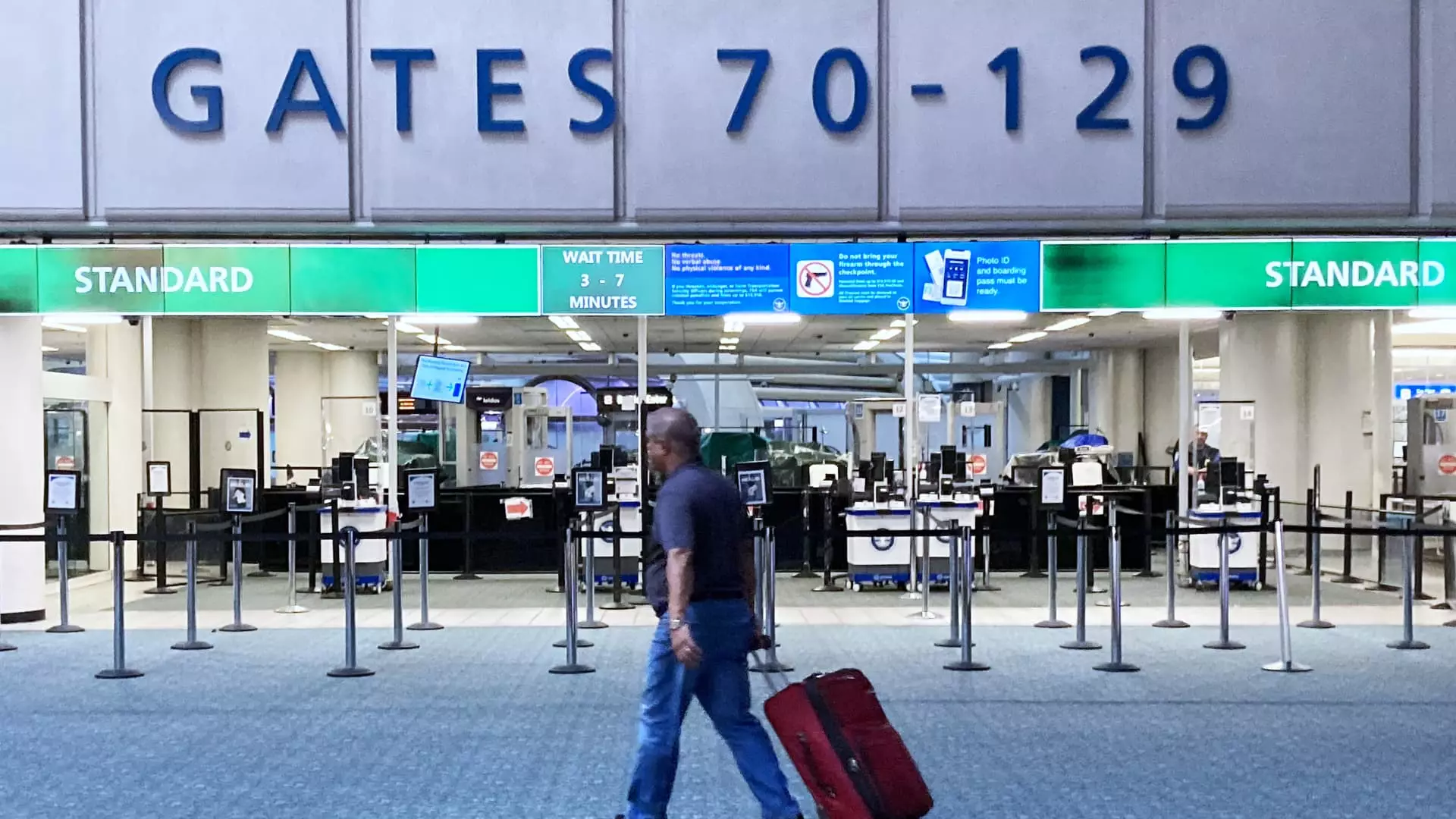As the holiday season approaches, the looming specter of a government shutdown adds an element of unpredictability that could significantly impact millions of travelers. With lawmakers currently unable to reach an agreement on a short-term funding bill, tensions are mounting as the December deadline nears. Without resolution, a government shutdown could begin as early as 12:01 a.m. ET on Saturday, just as families and individuals gear up for one of the busiest travel periods of the year.
The consequences of a government shutdown extend far beyond the political realm. If Congress fails to pass a spending bill, hundreds of thousands of federal employees are poised to be furloughed, leading to significant disruptions across various sectors. Most notably, the travel industry could stand to lose around $1 billion each week during the shutdown period, a figure calculated by the U.S. Travel Association. Comprised of representatives from various travel-related businesses, the association highlights the immense economic ramifications that a shutdown would impose, particularly during the holiday season when travel peaks.
Geoff Freeman, president of the U.S. Travel Association, articulated the absurdity of compelling essential workers, such as TSA agents and air traffic controllers, to work without compensation during such a critical time. In his statement, he emphasized the lack of rationale in forcing these workers to perform their duties while facing financial uncertainty, especially in the context of increased travel demands during the holidays.
Airline companies are bracing for what is anticipated to be the busiest holiday season on record, a development that adds urgency to the situation. Major airlines like United Airlines predict a sharp increase in passenger numbers, with 9.9 million people expected to fly between December 19 and January 6, representing a 12% increase compared to the previous year. The Transportation Security Administration (TSA) has projected that it will screen over 40 million travelers during this busy season. This surge in travel not only highlights the need for efficient airport operations but also raises concerns regarding potential delays caused by a partial government shutdown.
Despite the tumultuous political environment, air travel is expected to continue, with commercial flights scheduled to operate normally. However, there are inherent risks involved, especially given that TSA personnel, who are deemed essential, would be forced to work without pay if the shutdown occurs. Such a scenario inevitably raises concerns about workforce morale and operational efficiency.
Reflecting on previous government shutdowns, such as the record-breaking one from late 2018 to early 2019, can provide insight into the potential implications of a new closure. The past shutdown lasted more than a month and was marked by significant chaos within the aviation sector, particularly along the congested airspace of the U.S. East Coast. The temporary exiting of air traffic controllers due to financial strain caused severe flight delays and cancellations, sparking frustration among travelers.
With air travel being heavily affected during prior shutdowns, it’s essential for lawmakers to understand the ramifications of their continued indecision. The economic impact extends beyond just airline revenue, as a shutdown can reverberate throughout the broader economy, affecting everything from hospitality services to consumer spending.
Adding to the complexities of the situation is the fact that the Federal Aviation Administration (FAA) is in a leadership transition phase, with the current administrator set to step down. The next FAA chief will have unique challenges ahead, particularly concerning the modernization of air traffic control systems and hiring more controllers to meet the anticipated surge in air travel. Delta Air Lines CEO Ed Bastian has emphasized these priorities, stressing the need for innovative solutions to enhance operational efficiency and mitigate congestion.
As negotiations continue in Congress and the clock ticks down to a potential shutdown, the travel industry awaits the decision with bated breath. The scenario presents an intricate balancing act for lawmakers who must weigh political agendas against the collective economic consequences that a government shutdown could unleash. The holiday season should be a time of celebration and joy, but in this murky political landscape, uncertainty continues to reign.

